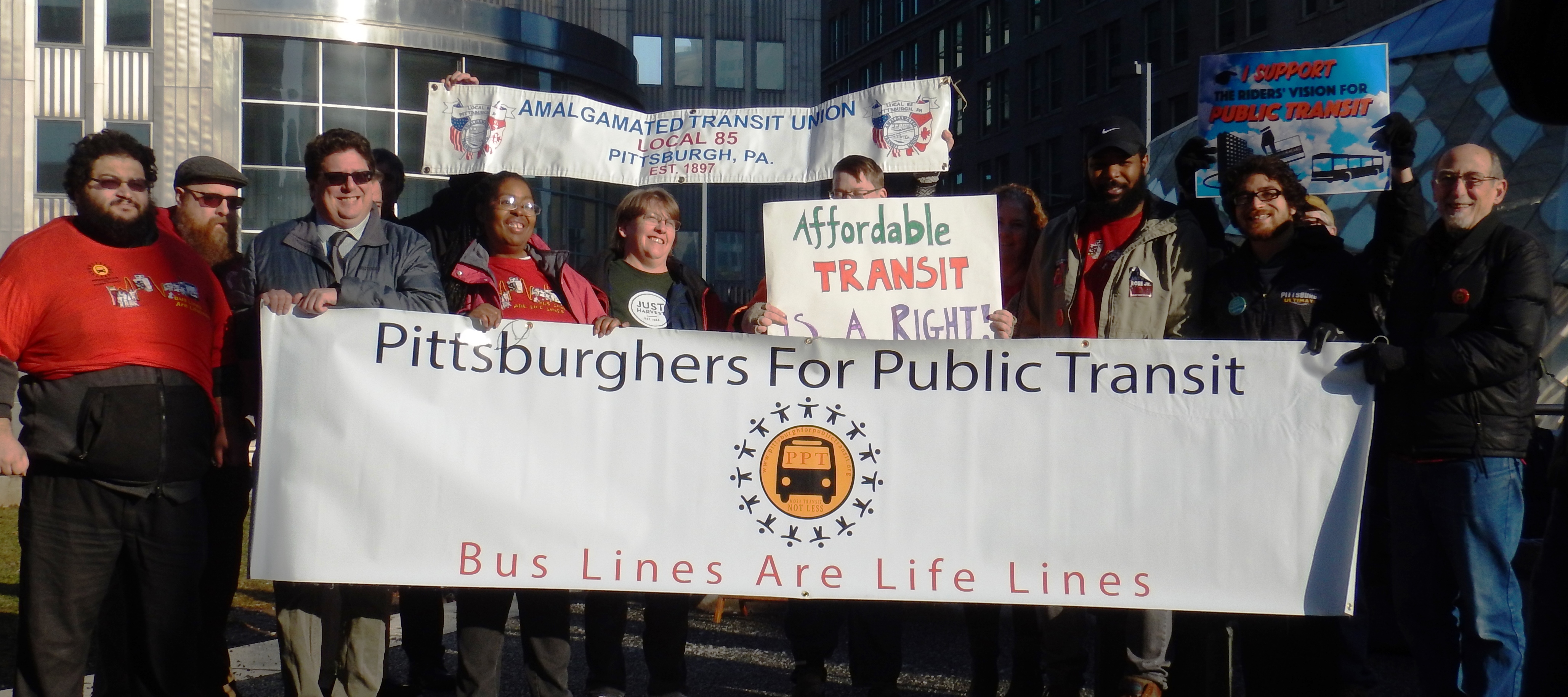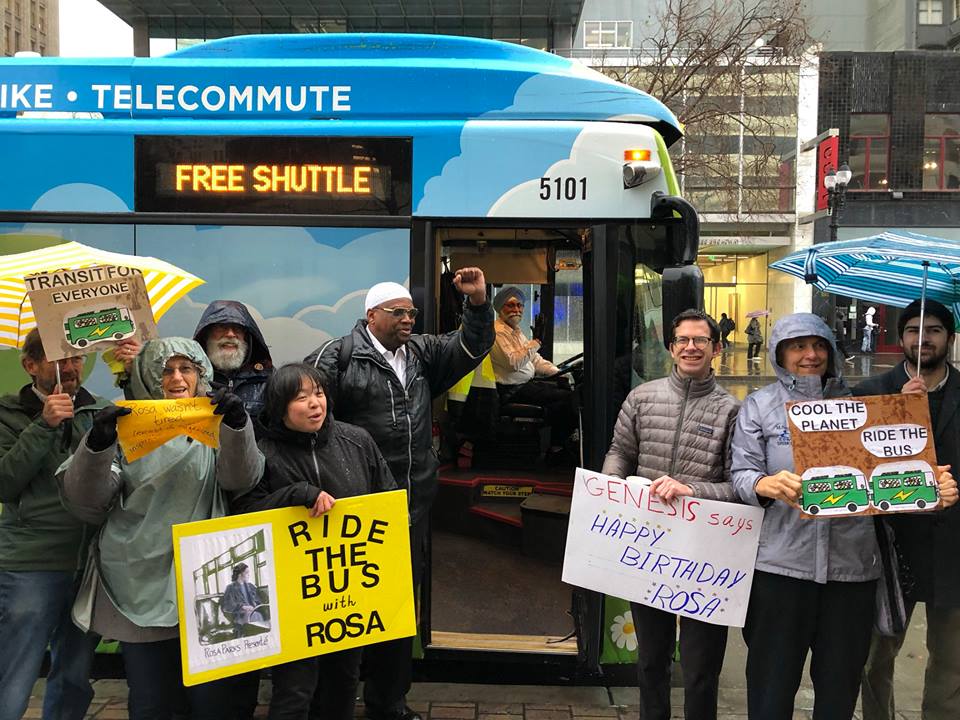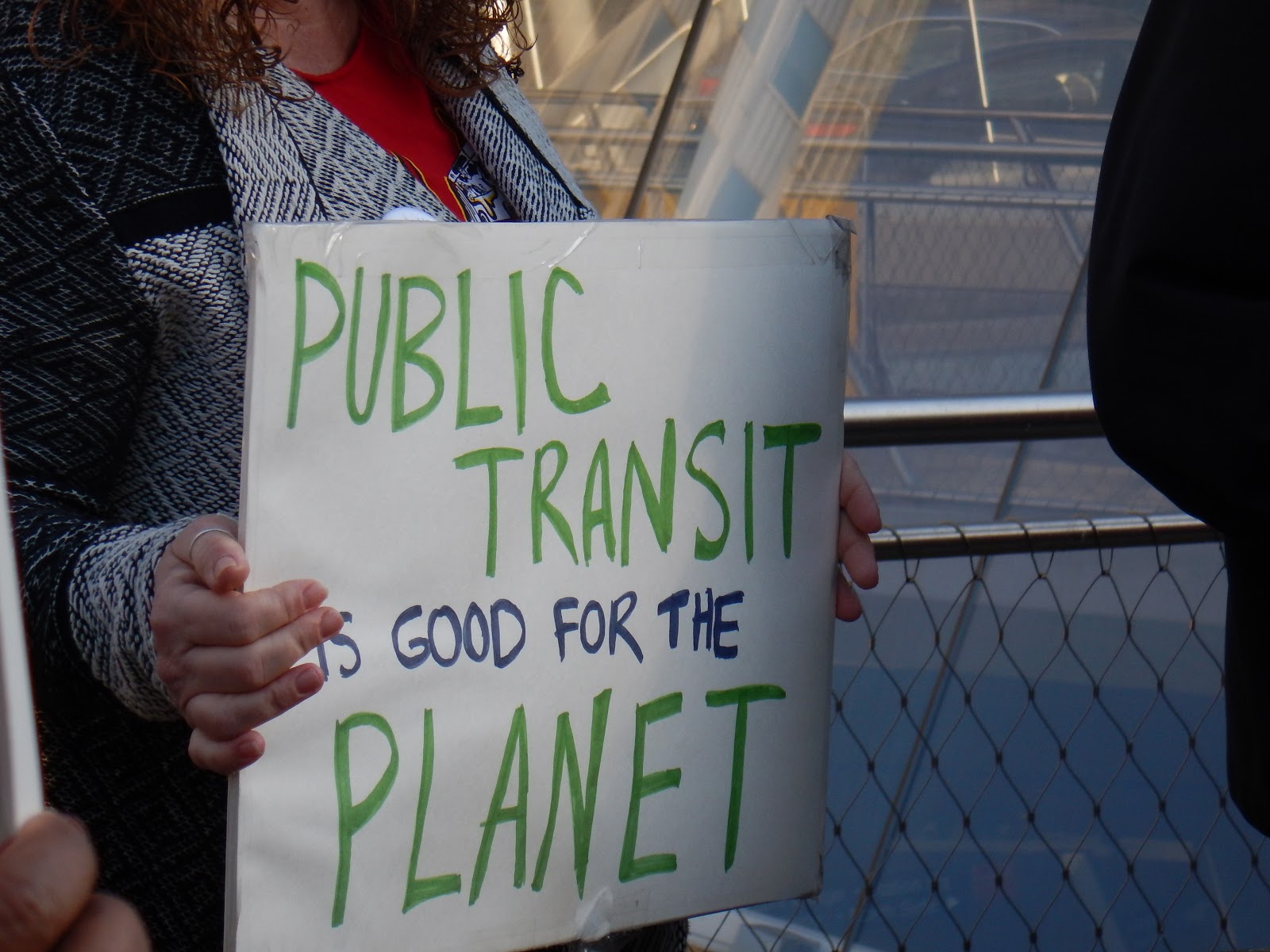Labor leaders, social justice advocates, and climate justice activists united on February 4 across the nation to celebrate Transit Equity Day, held in honor of the 106th birthday of civil rights icon Rosa Parks. Now in its second year, Transit Equity Day is led by the Labor Network for Sustainability, in partnership with groups like the Sierra Club, Amalgamated Transit Union, NAACP, and OPAL Environmental Justice.
Safe, accessible, affordable, and clean transit for all is a win for climate, for economic justice, and for workers. Transportation is the leading source of carbon pollution in the nation, and the urban-housing shortage is driving longer commute times. The number of Americans commuting for over 90 minutes each way grew by 23 percent from 2010 to 2015.
There’s tremendous room for improving how we get to where we need to be, whether it is to work, the grocery store, or the doctor’s office. That’s why, this February 4, local labor unions, environmental justice groups, faith leaders, and economic justice advocates came together to make specific demands to local transit agencies, including better pay for transit workers, electrification of buses, and funding for free transit passes.
In Montgomery County, Maryland, more than 70 people came out to celebrate Transit Equity Day, including several County Council members. County executive Marc Elrich issued a proclamation in honor of the day, and leaders from local unions, including UPWU, SEIU and UFCW Local 1994, were on hand to promote demands like converting to all-electric school buses for local public schools and transit agencies, accelerated Bus Rapid Transit, improved safety for riders, and an analysis of bus routes to ensure equity for all neighborhoods.
“UFCW Local 1994 members work hard every day for the county's residents and understand all too well the need for a clean, healthy, accessible, and reliable transportation system,” said Gino Renne, President of UFCW Local 1994. “Our members, including Ride-On drivers and maintenance employees, support the community and are proud they support us. We are honored to be part of Transit Equity Day and to preserve Rosa Parks's important legacy.”
In Pittsburgh, the local Sierra Club chapter partnered with Pittsburghers for Public Transit and the Amalgamated Transit Union to lift up Transit Equity Day. They used the opportunity to announce a rider-led campaign to extend the East Busway to McKeesport and Monroeville.
“It is vital that we are able to increase affordable transportation access in our communities throughout Allegheny County and Southwestern Pennsylvania if we are to continue the progress we have made in cutting carbon emissions and cleaning up the air we breathe,” said Pittsburgh Sierra Club organizer Randy Francisco. “Let’s start in low-income communities and those that Allegheny County has defined as ‘Environmental Justice Communities’ who are already suffering most from poor air quality and inadequate transportation access.”

The Connecticut chapter of the Sierra Club was an organizing partner in all six of the Transit Equity Day events hosted across the state. Each event featured a demo bus (with roses sectioning off a seat to honor Rosa Parks), leaflets, petition signing, and raffles for transit fare.
“Getting people out of their cars and onto buses is good for the environment. Transitioning buses to 100 percent electric, zero-emission vehicles will make transit even better for the environment,” said Samantha Dynowski, Sierra Club Connecticut director and a lead organizer of the event, which featured a press conference with representatives from the Connecticut Chapter of the Sierra Club, Amalgamated Transit Union, Connecticut Roundtable on Climate and Jobs, Transport Hartford Academy/Center for Latino Progress, 350 Connecticut, and Norwich branch of the NAACP.
Advocates distributed a petition addressed to Connecticut's Department of Transportation calling for more dollars to be funneled into transportation so that employees can have access to better wages and benefits, as well as the conversion of all buses into zero-emission vehicles.
In Oakland, Calif., Transit Equity Day was led by interfaith organization Genesis, Sierra Club, 350 East Bay, and the Ella Baker Center for Human Rights. Everyone who showed up to the event kept high spirits despite persistent rain, and concluded with a “Happy Birthday” sing-a-long to Rosa Parks. There were honks from bus drivers and cheers from commuters on the streets coming off and on the buses. Representatives from the groups spoke to people passing by about Rosa Parks's legacy and asked them to sign cards to contribute to the conversation about proposed fair raises for the local bus system.

"Transit justice means increased community access to public transit. We must reduce racial and economic disparities in our transit system,” said Nathaniel Arnold, an AC Transit bus driver and member of ATU local 192. "As we build transit justice, we build worker justice. Historically, workers who construct, operate, and maintain our transit system made wages that support a family. We must protect their right to safe working conditions, as well as good jobs -- not only for bus operators but for everybody in our community."
"Rosa Parks fought for equality, and we need to see that equality across all lines... we talk a lot about divestment and reinvestment. Divesting from our systems of policing, punishment, and prison, and reinvesting in communities and things that make us safe, like public transit!" said Jose Bernal of the Ella Baker Center.
Transit Equity Day was an opportunity for Sierra Club folks across the nation to join in solidarity with our partners in the labor and economic justice movements to advocate for affordable, accessible, clean, and safe transit for all, but the work to make this a reality continues year-round.
